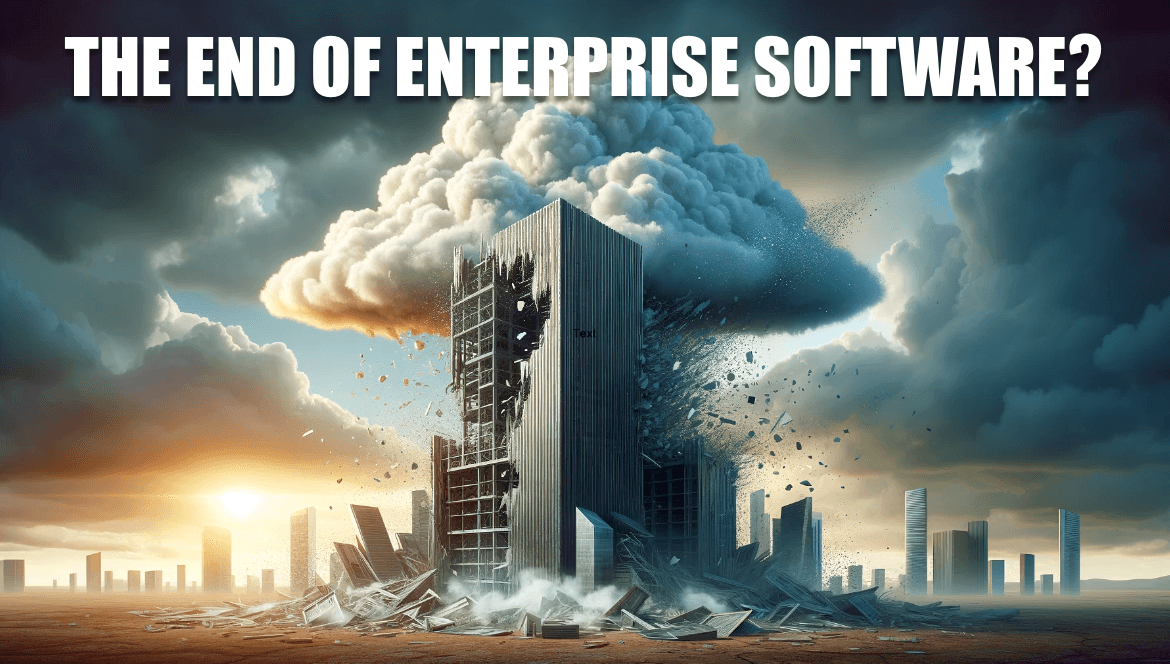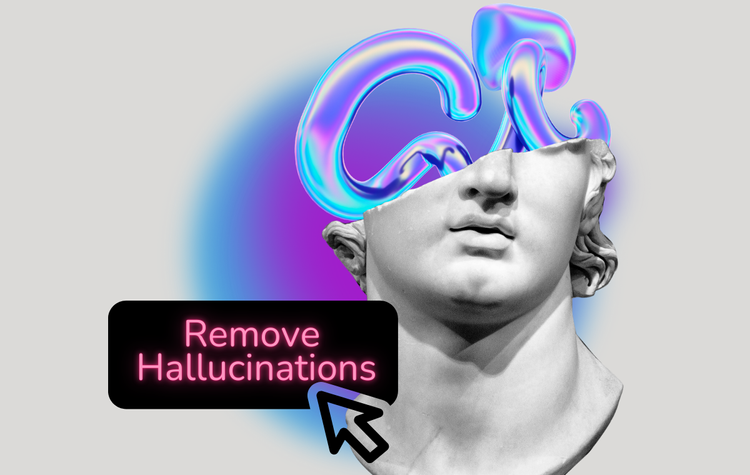The End of Enterprise Software?
Everyone knows that generative AI can have conversations, write articles and create images and videos. But does it also have the ability to completely redefine enterprise software as we know it?

For decades, enterprises have been trapped in a cycle of incremental upgrades and superficial innovations in software.
But the winds of change are blowing, and they're powered by generative AI.
Generative AI's ability to write articles, create art, and accelerate software development have captivated many.
Imagine, however, a world where generative AI can write flawless code and execute it in real-time. (We're already seeing this with Open AI's Code Interpreter.)
This advancement could mean the creative destruction of the enterprise software industry as we know it.
At its core, what exactly is enterprise software? Most enterprise software is fundamentally:
- A data store or set of data stores, being accessed thru
- A set of APIs, and
- A user interface that displays the data and allows the user to both read and write changes to the data
But, recently, I can't help but notice that almost everyday, we seem to be deprecating a button or click in favor of a more intuitive natural language instruction – either written chat, or eventually voice chat.
There are 5 massive long-term implications for this trend:
1. Much smaller enterprise applications. Applications that were hundreds or thousands of different screens could be reduced to just a few screens, one for each type of user to manipulate an generative AI with appropriate access controls.
2. The UI/UX profession will be completely reinvented. The era of designing buttons and screens may be coming to an end. Natural language interactions can make traditional UI/UX obsolete.
Of course, an empty chatbot window or idle microphone lacks affordance. A new generation of UI/UX will be needed to help enterprise users understand what they can/can’t do with their generative AI application.
3. No more APIs. Following a natural language prompt, an AI can generate SQL queries (or the unstructured equivalent) on the fly and submit them to the database, eliminating the need for APIs.
4. Smaller enterprise software companies. Less front-end engineering, less UI/UX work, and less API back-end engineering work mean smaller engineering, UI/UX, and product management teams, and smaller enterprise software companies in general.
5. A potential change in business models. Smaller AI-first software companies will have dramatically different cost structures than traditional enterprise software companies. They can leverage this advantage and engage in creative destruction, possibly by introducing new business models that traditional enterprise software companies simply can’t afford.
Agree or disagree?
- Can generative AI replace traditional enterprise software?
- Is the enterprise software industry blissfully ignorant of the tsunami that's coming?
- Is clinging to traditional software models a recipe for obsolescence?
Thoughts and comments are welcome!



